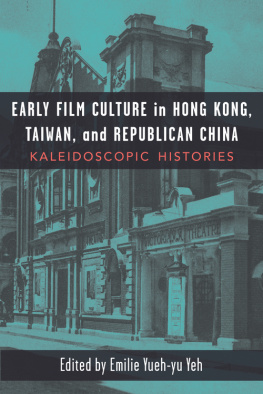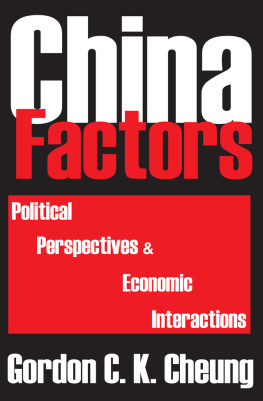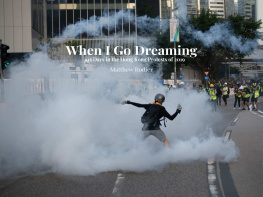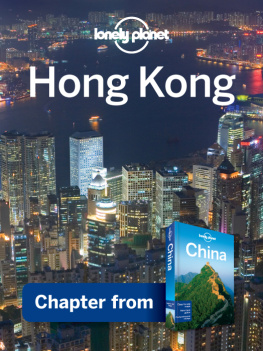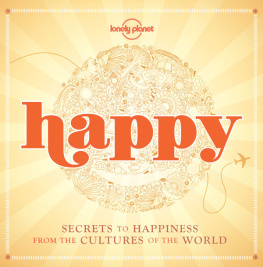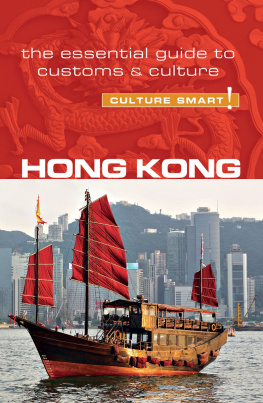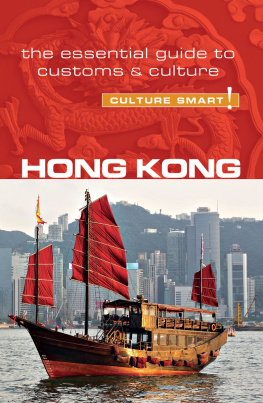Emilie Yueh-yu Yeh - Early Film Culture in Hong Kong, Taiwan, and Republican China: Kaleidoscopic Histories
Here you can read online Emilie Yueh-yu Yeh - Early Film Culture in Hong Kong, Taiwan, and Republican China: Kaleidoscopic Histories full text of the book (entire story) in english for free. Download pdf and epub, get meaning, cover and reviews about this ebook. year: 2018, publisher: University of Michigan Press, genre: Non-fiction. Description of the work, (preface) as well as reviews are available. Best literature library LitArk.com created for fans of good reading and offers a wide selection of genres:
Romance novel
Science fiction
Adventure
Detective
Science
History
Home and family
Prose
Art
Politics
Computer
Non-fiction
Religion
Business
Children
Humor
Choose a favorite category and find really read worthwhile books. Enjoy immersion in the world of imagination, feel the emotions of the characters or learn something new for yourself, make an fascinating discovery.
- Book:Early Film Culture in Hong Kong, Taiwan, and Republican China: Kaleidoscopic Histories
- Author:
- Publisher:University of Michigan Press
- Genre:
- Year:2018
- Rating:5 / 5
- Favourites:Add to favourites
- Your mark:
- 100
- 1
- 2
- 3
- 4
- 5
Early Film Culture in Hong Kong, Taiwan, and Republican China: Kaleidoscopic Histories: summary, description and annotation
We offer to read an annotation, description, summary or preface (depends on what the author of the book "Early Film Culture in Hong Kong, Taiwan, and Republican China: Kaleidoscopic Histories" wrote himself). If you haven't found the necessary information about the book — write in the comments, we will try to find it.
Emilie Yueh-yu Yeh: author's other books
Who wrote Early Film Culture in Hong Kong, Taiwan, and Republican China: Kaleidoscopic Histories? Find out the surname, the name of the author of the book and a list of all author's works by series.
Early Film Culture in Hong Kong, Taiwan, and Republican China: Kaleidoscopic Histories — read online for free the complete book (whole text) full work
Below is the text of the book, divided by pages. System saving the place of the last page read, allows you to conveniently read the book "Early Film Culture in Hong Kong, Taiwan, and Republican China: Kaleidoscopic Histories" online for free, without having to search again every time where you left off. Put a bookmark, and you can go to the page where you finished reading at any time.
Font size:
Interval:
Bookmark:

Emilie Yueh-yu Yeh, editor
University of Michigan Press
Ann Arbor
Copyright 2018 by Emilie Yueh-yu Yeh
All rights reserved
This book may not be reproduced, in whole or in part, including illustrations, in any form (beyond that copying permitted by Sections 107 and 108 of the U.S. Copyright Law and except by reviewers for the public press), without written permission from the publisher.
Published in the United States of America by the
University of Michigan Press
Manufactured in the United States of America
A CIP catalog record for this book is available from the British Library.
Library of Congress Cataloging-in-Publication data has been applied for.
978-0-472-07372-6 (Hardcover : alk paper)
978-0-472-05372-8 (Paperback : alk paper)
978-0-472-12344-5 (ebook)
Many people were supportive of this publication and did their utmost to direct it toward completion. I would like to thank the twelve contributors for their trust and support. Without them, our knowledge of the early film culture would remain impoverished. Among outside supporters, I thank Nicole Huang for her valuable advice. Thanks also to Markus Nornes and Matthew Solomon for putting their hats into the ring. Mary Francis, the Editorial Director at the University of Michigan Press, guided this project from the beginning, and her editorial nous was essential for this work to get in shape. The anonymous readers comments were incisive in refining individual chapters and reframing the book as a whole. Zhang Zhens pioneering work in Shanghai cinema injected theoretical rigor to the studies of early film culture in East Asia. Poshek Fus vision in reshaping Chinese film historiography opened many gates for new studies, including this one. Xiaocai Feng showed us how to craft exemplary historical research. David Bordwell, Michael Curtin, Melissa Curtin, Dudley Andrew, David Der-wei Wang, Chris Berry, Wenchi Lin, Isabelle Pei-tzu Wu, Sheldon Lu, Weihong Bao, Song-Yong Sing, Michael Berry, Shi Chuan, and Paul Katz offered their help, encouragement, and fellowship at various stages. I thank the Chiang Ching-kuo Foundation for International Scholarly Exchange, the Research Grants Council of Hong Kong Government, and Hong Kong Baptist University for their research support. I also want to thank my colleagues at the School of Communication for their friendship and help over the years. My research assistant Wai Ka Yan deserves special mention. Without her backing, this book would not be published on time. Four chapters in this volume were previously published in a special issue of the Journal of Chinese Cinemas. I thank the then-editor, Song Hwee Lim, for the opportunity. I thank Jenny Geyer and Mary Hashman at the University of Michigan Press for their care and help throughout the entire production. Most of all, I am indebted to my family in Taiwan, Hong Kong, and the United States. Their unfailing support has given me much-needed stamina and faith in my embarkation on early screen histories in this part of the world.
Emilie Yueh-yu Yeh
February 2017
Hong Kong
Romanization of Chinese characters has become simpler in recent decades. For the most part, essays in this volume use the pinyin system to transliterate and render Chinese names, titles, places, and people. In some cases the authors provide additional Cantonese pronunciation for further specification. When filmmakers or authors refer to English renditions of their work, we usually follow that convention in subsequent references. This was a common convention during the Republican period, with many companies and political bodies adopting official English names. Several essays also use loanwords from Japanese, which are romanized in the usual Hepburn system.
Emilie Yueh-yu Yeh
Studies on Chinese early cinema and its extended history in the Republican period (19111949) have trod a rocky path. After the founding of the Peoples Republic in 1949, film historiography developed into a guarded field, even until today. In the immediate postwar time the term Republican was tainted by its attachment to the defeated Nationalist Party and its associated autocratic capitalism, corrupt bureaucracy, and dependence on foreign imperialist powers. Because of these negative associations, the notion of Republican cinema became suspect and was subject to monitoring and constraint, in the 1950s and after. The formerly infamous epoch was acknowledged as pivotal to the development of Chinese modernity when the censorious treatment of the Republican period relaxed in the twenty-first century. Subsequently, Republican history was reconstructed by many scholars as Shanghai history, given the citys unrivaled position (so-called Paris of the Orient) in early twentieth-century China. Shanghai cinema was then upheld as a synecdoche for cinema of the entire era as the city was then the countrys center of film production, distribution, and exhibition. The term Shanghai, despite its mythology (qipao, jazz, dance halls, intrigues, department stores, hippodrome, canidrome, dandies, motor cars, Ruan Lingyu, sultry Mandarin pop), risks reducing the scope of Republican history into a looking glass containing the most alluring facets. Shanghai cinema, too, when used as the overarching Republican cinema or Chinese cinema before 1949, entails a limited, partial approach to the vast terrains of cinema practices in many parts of China and colonies like Hong Kong, Taiwan, Macao, and the Chinese diaspora generally.
Granted, Shanghai is central in the development of Chinas modernity Through the concerted efforts of two generations of scholars, Shanghai was decisively crowned as the jewel of Chinese modernity and cosmopolitanism; film and media culture associated with the citycelebrities, advertising, magazines, popular fiction, theaters, and the urban spacealso emerged to typify Chinese cinema in general. Hence the currency of Shanghai cinema. Further, in the course of rewriting Chinese film history, the cinema of Shanghai was useful in presenting alternatives to party-inflected hagiography of the national cinema, including those claimed by the Communist and Nationalist parties. Since the beginning of the new millennium, Shanghai cinema has returned with a vengeance with its voluptuous endowment. Resonance with historic sounds and sights of the International Settlement, recollections of Chinas cosmopolitan glamour of the early twentieth century, and archival resources hidden in old magazines, diaries, and warehouses have turned Shanghai into a centerpiece, the one and only film capital in contemporary Chinese film studies.
Shanghai cinema may deserve its reputation for luminous glamour, but it may also obscure roads not taken. It is fair to say that the talisman of Shanghai cinema has eclipsed other sites and activities important to the makeup of an inclusive history. There are gaping holes and omissions when we pigeonhole Shanghai as the sole repository of Republican movie experience. To address this issue, we must adjust the existing binary of Communist-orthodox versus Shanghai-modern historiography by probing the cinema histories of less familiar sites located in different sociopolitical institutions. Republican China is too large, too diverse to be shackled to just one city, no matter Shanghais enchantment. In this book we focus on cities in addition to ShanghaiHong Kong, Taipei, and Guangzhouby identifying lesser-known practices beyond the dizzying and colliding reflections of early cinema as defined by Shanghai
Font size:
Interval:
Bookmark:
Similar books «Early Film Culture in Hong Kong, Taiwan, and Republican China: Kaleidoscopic Histories»
Look at similar books to Early Film Culture in Hong Kong, Taiwan, and Republican China: Kaleidoscopic Histories. We have selected literature similar in name and meaning in the hope of providing readers with more options to find new, interesting, not yet read works.
Discussion, reviews of the book Early Film Culture in Hong Kong, Taiwan, and Republican China: Kaleidoscopic Histories and just readers' own opinions. Leave your comments, write what you think about the work, its meaning or the main characters. Specify what exactly you liked and what you didn't like, and why you think so.

